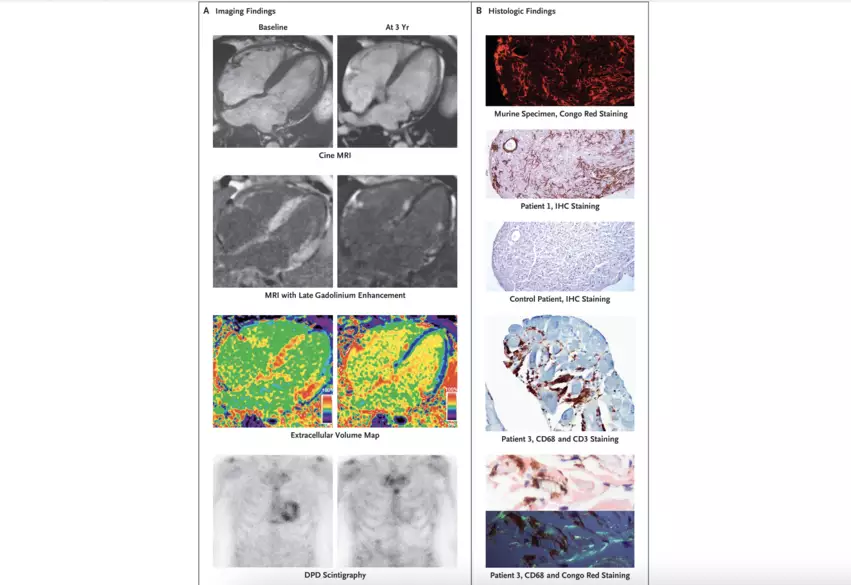‘A hugely significant development’: Severe heart condition reverses in 3 patients, shocking experts
Cardiologists and other physicians have always believed cardiac transthyretin amyloidosis (ATTR-CM), a progressive heart condition associated with a high mortality rate, was irreversible.
According to new research out of University College London, however, ATTR-CM-associated heart failure “resolved spontaneously” in three male patients between the ages of 68 and 82 years old. Symptoms were reduced in all three patients even though none of them had received any new treatments. The study’s authors explored these cases in detail, sharing their findings in the New England Journal of Medicine.[1]
“We have seen for the first time that the heart can get better with this disease,” lead author Marianna Fontana, MD, PhD, a professor of cardiology at UCL, said in a prepared statement. “That has not been known until now and it raises the bar for what might be possible with new treatments.”
The team’s research began when a 68-year-old patient started showing signs of improved symptoms, surprising physicians from a number of different specialties. This inspired the group to examine records from an additional 1,663 patients diagnosed with ATTR-CM and seen at the National Amyloidosis Centre in London. Two additional patients showing signs of improvement were identified, and researchers confirmed their resolved disease with blood tests and multiple cardiac imaging modalities, including echocardiography.
Fontana et al. did note that signs of amyloid-attacking antibodies were seen in all three patients. These antibodies were not seen in other ATTR-CM patients. More research into this phenomenon is still required.
“Whether these antibodies caused the patients’ recovery is not conclusively proven,” co-author Julian D. Gillmore, MD, PhD, head of the UCL Centre for Amyloidosis, said in the same statement. “However, our data indicates that this is highly likely and there is potential for such antibodies to be recreated in a lab and used as a therapy. We are currently investigating this further, although this research remains at a preliminary stage.”
“This work not only represents a major breakthrough in our understanding of cardiac amyloidosis, but crucially opens up new possibilities for more effective treatment options,” added Jon Spiers, chief executive of the Royal Free Charity, which helped fun the team’s research. “It’s a hugely significant development that we welcome on behalf of all patients of the National Amyloidosis Centre and their families, many of whom have contributed to our research funding with their own fundraising efforts.”
The full study is available here.
![Large peridevice leaks after left atrial appendage occlusion (LAAO) are incredibly rare and not associated with a greater risk of adverse outcomes, according to new research published in JACC: Clinical Electrophysiology.[1] Smaller residual links are more common, however, and associated with a risk of thromboembolic and bleeding events.](/sites/default/files/styles/top_stories/public/2018-08/olderpatient-doctor.jpg.webp?itok=Cv18wcDr)

